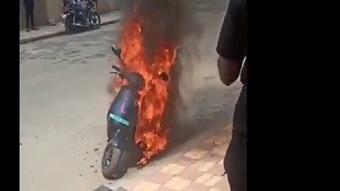The rise in the electric vehicle’s popularity in India has also raised concerns about its safety because of the recent fire incidents with the electric vehicles. Amid this rising concern with e-vehicles, the Bureau of Indian Standard has formulated the standards for the batteries used in electric vehicles.
In an official release the National Standard Body of India, BIS, mentions that the standards have been released for Test Specifications for Lithium-ion Traction Battery Packs and Systems (Performance Testing) for Electrically Propelled Road Vehicles. The standard IS 17855: 2022 for these battery packs and systems is harmonized with ISO 12405-4: 2018.
These standards set by BIS incorporate the test procedure for the basic characteristics of performance, reliability and electrical functionality for the battery packs and system for either high power or high energy application. This standard is formulated considering real-life scenarios for an electric vehicle such as a vehicle is in parking (battery is not used for an extended period of time), the battery system is being shipped (stored), operating battery at low and high temperature, etc…, accordingly various tests are incorporated in this standard.
In addition, the Bureau of Indian Standard is in the process of publishing two more standards related to batteries for various passenger and goods carrying vehicles (L, M and N category).
The standards set by BIS focus on the safety and performance of batteries in electric vehicles. Most EVs use Lithium-ion batteries because of their high power to weight ratio.
Further, keeping a view on the safety aspect of batteries for EVs, the standards set by BIS focuses on the safety and performance of the batteries in electric vehicles.
The electric vehicles’ safety has become a major concern, because of the recurring fire incidents with the e-vehicles. The latest fire incident is with the Tata Nexon.
The Defence Research and Development Organisation (DRDO), which had been tasked with investigating electric two-wheeler fire incidents by the Union Road Transport Ministry and also in this case (Tata Nexon) had found serious defects in the batteries. As per the probe by the DRDO, these defects occurred because the electric two-wheeler manufacturers may have used “lower-grade materials to cut costs”.








